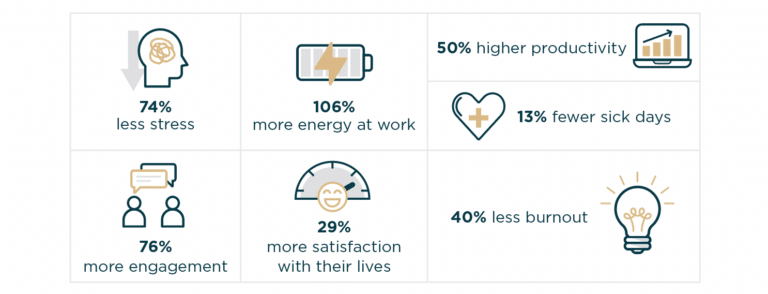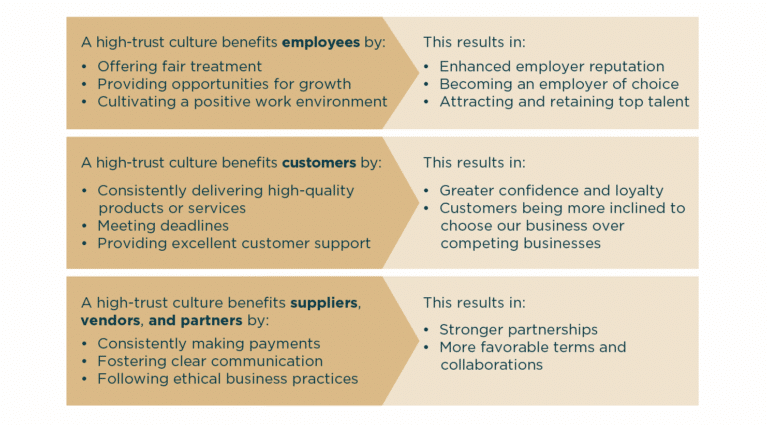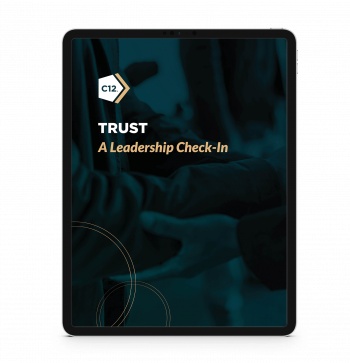Trust: A Leadership Essential
Building a High-Trust Culture in Your Business
Trust forms the bedrock of all effective leadership. In today’s rapidly evolving business landscape, building a high-trust culture in your business is more critical than ever. Unfortunately, a lack of trust is becoming the norm. “Trust for institutions across society is declining,” as outlined in this article by Stanford Social Innovation Review. A 2023 Global Leadership Forecast found that only 23% of U.S. employees trust their organization’s leadership, which has far-reaching implications. Establishing trust between employees, managers, and senior leaders directly impacts employee engagement, retention, and productivity, making it a non-negotiable factor for long-term business success.

This article examines the importance of trust in leadership, explores Dr. Henry Cloud’s strategies for building a high-trust culture in your business, and evaluates how trust—or the lack of it—affects business outcomes.
The Role of Trust in Leadership
At its core, trust is about confidence in someone’s integrity, abilities, and intentions. Trust within a business impacts more than just interpersonal relationships. It defines how employees, customers, and partners interact with the company. When trust is lacking, the effects can be devastating: communication breaks down, collaboration becomes limited, and productivity decreases.
Employees who lack trust in their leaders are less likely to go the extra mile in their roles. Instead, they may focus on their own interests, putting personal priorities ahead of the organization’s goals. This can lead to lower employee engagement, higher turnover, and a reduced ability to adapt to the constantly evolving business environment.
Building a high-trust culture in your business does not happen overnight, but the payoff is significant when you take deliberate steps to foster trust. According to Harvard Business Publishing, employees in high-trust companies report 74% less stress, 106% more energy at work, 50% higher productivity, and 13% fewer sick days. Additionally, these companies experience 76% more engagement, 29% more satisfaction with their lives, and 40% less burnout. Simply put, trust enables businesses to thrive.

Understanding the Nature of Trust
2 Chronicles 10:1–19 offers a powerful example of the consequences of broken trust. When King Rehoboam rejected wise counsel and sought to oppress his people further, he lost their trust and, ultimately, his kingdom. His failure to lead with compassion and humility resulted in rebellion.

Jim Lynch, president and founder of JPL Cares, faced severe turnover and instability that puzzled him for some time. Eventually, Jim uncovered an unsettling truth: a manager had been embezzling money from the company and undermining the administrative staff to cover his tracks. This discovery prompted Jim to embark on a journey of reevaluating his leadership, rebuilding his business, and restoring trust.
The lesson is clear: leaders must prioritize earning and maintaining the trust of those they lead. Without trust, no amount of strategic planning, supply chain prowess, or AI integration can sustain long-term success. As illustrated in the biblical story of Rehoboam and in Jim Lynch’s business partner, leaders lose trust when their actions hurt those they lead. Conversely, leaders gain trust when they ask questions, listen, show empathy, and act with integrity.
Trust in Practice: Building a High-Trust Culture
Imagine a business where trust is woven into the very fabric of the organization—a company where employees trust their leaders, customers trust the brand, and vendors trust their partners. This vision may seem idealistic, but it is achievable. Building a high-trust culture in your business requires consistent effort, but the benefits are far-reaching.
In a high-trust culture, employees experience fairness, opportunities for growth, and a positive work environment. This encourages loyalty and helps retain top talent. Likewise, customers benefit from consistently high-quality products or services delivered on time and on budget, which boosts their confidence in the business and strengthens long-term loyalty. Additionally, suppliers, vendors, and partners appreciate clear communication and ethical business practices, fostering stronger partnerships and more effective collaborations.

Trust-Building Strategies for Leaders
You must build trust with your teams, customers, and partners to be an effective leader. In his book Trust, Dr. Henry Cloud identifies five components of trust that must be present in any relationship:

- Understanding: Trust begins with understanding others. Empathy and active listening are crucial. When people feel heard and understood, they are more likely to trust that their concerns and needs will be considered. Great leaders ask questions, listen deeply, and seek to understand their employees, customers, and partners. This understanding helps leaders make informed decisions, tailor services to meet customer needs, and foster stronger, more empathetic relationships.
- Motive: Beyond understanding, stakeholders also assess the motives behind leadership decisions. Trust grows when people believe their leaders act in their best interest. Leaders must demonstrate that their intentions are pure, placing the needs of the team and the organization above personal gain. A leader’s motives become apparent through their actions. Are they transparent and honest? Do they admit mistakes and strive to do what is right? Trustworthiness stems from aligning words with actions and consistently showing care for others.
- Ability: People trust those who are competent in their roles. Whether you are delivering a product, leading a team, or executing a strategic vision, your ability to perform is critical in building a high-trust culture in your business. Customers, employees, and partners evaluate whether you have the skills and expertise necessary to meet their needs. Leaders must demonstrate their ability to execute plans effectively, ensuring that promises are met with results.
- Character: Good character is the backbone of trust. Leaders with moral integrity are more likely to gain and retain the trust of their followers. As 2 Peter 1:5–9 teaches, virtue, knowledge, self-control, perseverance, godliness, brotherly kindness, and love are qualities of a trustworthy person, while traits like narcissism and irresponsibility erode trust. Trustworthy leaders act with honesty, humility, and kindness, consistently modeling the behavior they wish to see in their teams.
- Track Record: Trust is built over time through consistent, reliable behavior. Your track record—the sum of your past actions—signals to others what they can expect from you in the future. To build a strong track record, you must follow through on commitments, meet deadlines, and demonstrate accountability in every interaction.
Evaluating Trust in Your Organization
Assessing the current level of trust within your company offers valuable insights into areas that may need improvement. By identifying gaps in your trust-building strategies, you can take proactive steps to cultivate a more trust-filled and cohesive organizational culture.
To deepen your understanding of trust within your organization, download our free tool, Trust – A Leadership Check-In. This assessment will help you reflect on your leadership practices and identify areas for growth. By evaluating Dr. Henry Cloud’s key attributes of trust—understanding, motive, ability, character, and track record—you can gain actionable insights to strengthen trust at all levels of your organization. Empower your team and elevate your leadership by using this practical, results-driven tool.
Building Trust for Lasting Success
Effective leadership is built on the foundation of trust. By cultivating Dr. Henry Cloud’s five components of trust, you can raise the trust quotient within your business. A high-trust culture not only benefits your employees but also strengthens relationships with customers and partners. For Christian business leaders, there is an added opportunity to model trustworthiness, contributing to both business success and a positive testimony. By following the example of the ultimate leader, Jesus Christ, you can become a leader others can trust—making a Kingdom impact on your business and the people you serve.
C12 Business Forums provides an architected environment for Christian business leaders that integrates work, life, and leadership transformation. To learn more about C12’s approach to Christ-centered business leadership, find a C12 Business Forum near you.
October 14, 2024






